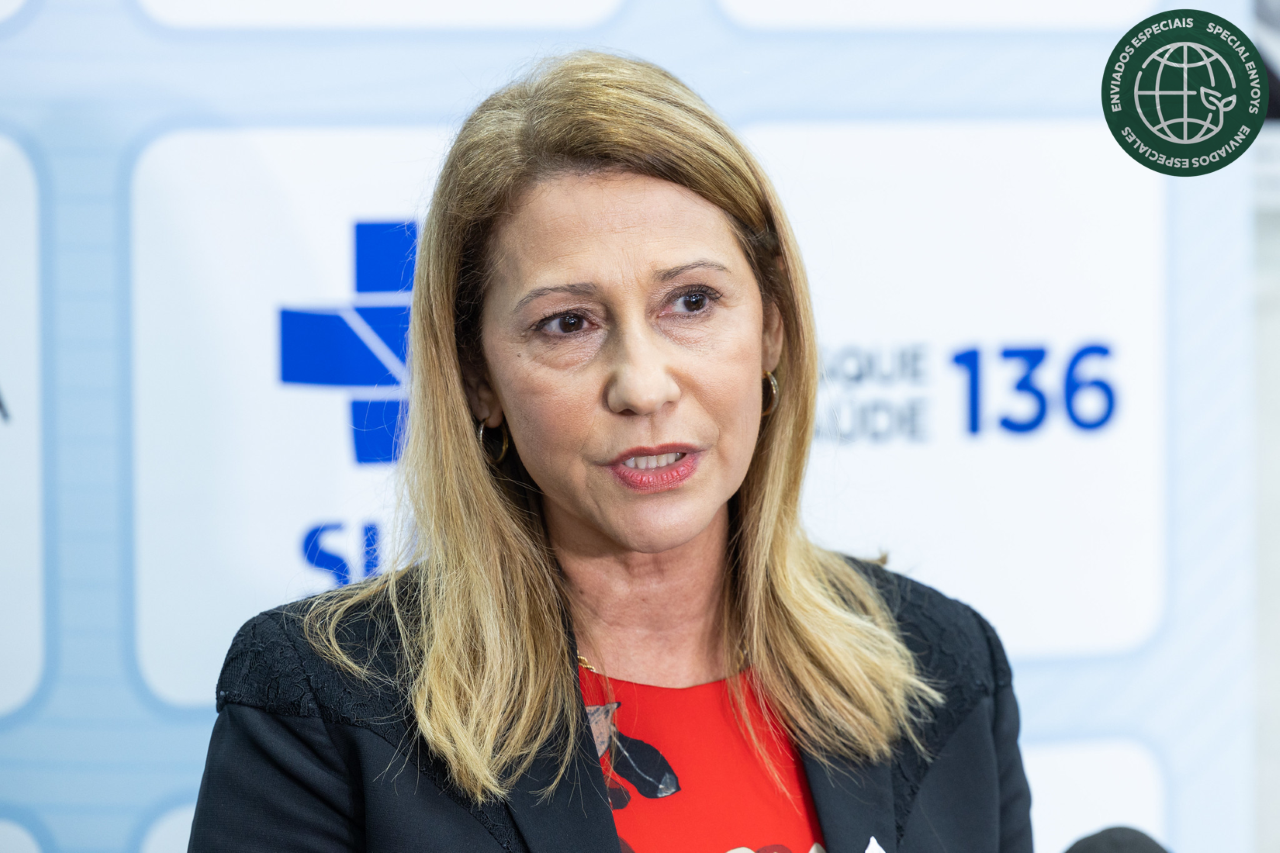COP30 Marks Inclusion of Health in the Climate Agenda, Says Special Envoy
Ethel Maciel highlights that the Belém Action Plan proposes three pillars for integrating health into the climate agenda, focusing on adaptation and the strengthening of resilient systems. The theme is also included in the COP30 Action Agenda.

By Mayara Souto / COP30
“The goal is for COP30 to be about implementation, and for health actions to be more effective,” said Ethel Maciel, nurse and epidemiologist specializing in infectious diseases, and COP30 Special Envoy for Health. Continuing the series on Special Envoys, which work to broaden engagement of different sectors with the Conference, the former Secretary of Health and Environment Surveillance at Brazil’s Ministry of Health (2023–2025) outlined the three pillars of the Belém Health Action Plan.
According to Maciel, health was formally incorporated into climate negotiations only at COP28 in Dubai. Since then, a Health Day has been established, observed on 13 November. With the objective of being the “Implementation COP,” the COP30 Presidency has been structuring the Belém Health Action Plan since last year. The document aims to mobilize the global community to build health systems that are climate-resilient and environmentally sustainable.
“We have divided the plan into three action groups so far. The first focuses on the need for more effective surveillance and monitoring to strengthen the health surveillance system,” explained the Special Envoy regarding the structure of the Belém Health Action Plan.
The Special Envoy cited a Brazilian example: the city of Rio de Janeiro is the only one to have successfully integrated climate and health data to make predictions. Based on this model, authorities can anticipate that temperatures above 40°C increase demand for health services, and higher levels of air pollution similarly affect service utilization.
Resilience
The second pillar of the Belém Health Action Plan is the Evidence-Based Policy Strategy. “Unfortunately, from the perspective of health professional training, we lack education and capacity building on the impact of climate change on health. There is a need to focus on qualification, including preparing teams to respond to climate-related emergencies,” explained Ethel Maciel.
This pillar also includes infrastructure measures, which became evident in Brazil during last year’s floods in Rio Grande do Sul. According to the Special Envoy, many health units stored vaccines and medicines in areas that were flooded, such as basements. Preventing these vulnerabilities is part of the planning required to deal with extreme events, ensuring continuity of care for the population.
Because of such events, many people had to leave their homes with nothing, including documentation. As a result, health units had to adapt to deliver continuous-use medicines, for example, without requiring physical identification documents.
“Training health professionals to deal with these impacts also helps understand changes in disease patterns, as in the case of the Oropouche virus, which was previously concentrated in the Amazon region but spread across Brazil, and dengue, which saw the largest epidemic in the country. Even countries that previously had no dengue, such as Uruguay and Italy, have experienced cases due to climate change,” the Special Envoy further warned.
The third pillar of the Belém Health Action Plan is Innovation and Production. Maciel explained that health technology production has a significant impact on the climate. “We produce a lot of plastic,” she remarked. To address this, it is necessary to invest in more research and seek sustainable solutions for the environment.
The Belém Health Action Plan will be officially launched on 13 November during COP30. There will also be two complementary reports: one on evidence and another on social participation.
SUS as a Global Example
Maciel highlighted Brazil’s greatest asset in leading by example: the Unified Health System (SUS), the largest public health system in the world. “For 35 years, we have developed SUS, gaining valuable experience on health action. It is a strength during extreme events, such as floods in Rio Grande do Sul, droughts in the North, and wildfires in the Pantanal.”
A notable Brazilian contribution to climate-health resilience is the work of community health and endemic disease inspectors. “These professionals knock on people’s doors and are often the first to identify adverse conditions. For example, a dead animal found suspiciously can be tested for viruses that might spark a pandemic,” Maciel explained.
Through this and other initiatives, Brazil is fostering broader, higher-quality dialogue on health. Maciel emphasized that her role as COP30 Special Envoy has been crucial in listening to voices across sectors to enrich the discussion with the COP30 Presidency.
“Our COP President, Ambassador André Corrêa do Lago, envisions COP30 as a ‘resonance box.’ I believe this is working very well,” reflected Ethel Maciel on the opportunity to disseminate health information to civil society.
Special Envoys
The COP Presidency has selected 29 Special Envoys to support engagement and outreach with priority sectors and regions for the success of the Conference. The Envoys, who serve voluntarily and in a personal capacity, were chosen for their expertise and credibility in their respective fields. In total, there are seven international Envoys and 22 national Envoys.
They act as key interlocutors for the flow of information and perceptions from the areas they represent, allowing interactions to occur more quickly and effectively. They also serve as a direct channel to communicate requests and demands to the COP30 Presidency, acting as a point of contact for sectors and regions.
Translation: Tadeu Azevedo (POET/UFC)
Proofreading: Michel Emmanuel Félix François (POET/UFC)
